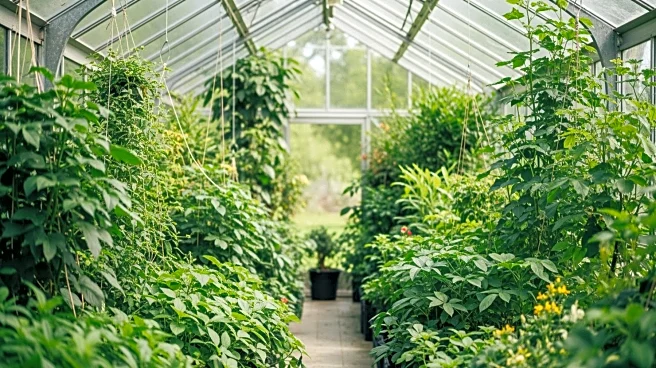What's Happening?
The Organic Grower Summit has announced the finalists for the 2025 Organic Grower of the Year Award, sponsored by John Deere. This year's finalists are recognized for their innovative practices and commitment
to sustainability in organic farming. The finalists include Carl Pepper from Texas, Arnott Duncan from Arizona, Oregon, and New York, Larry Jacobs from California, and Harold and Ross Wilken from Illinois. Each finalist represents a unique approach to organic agriculture, from cotton and leafy greens to grains and herbs. The summit will feature a new four-finalist format, allowing these leaders to share their insights and inspire others in the industry.
Why It's Important?
The recognition of these finalists highlights the growing importance of sustainable practices in agriculture. As organic farming continues to expand, these leaders set benchmarks for innovation and community impact. Their practices not only contribute to environmental conservation but also support local economies and food security. The summit provides a platform for sharing successful strategies, potentially influencing broader adoption of organic methods across the U.S. agriculture sector. This can lead to increased consumer trust and demand for organic products, benefiting both producers and consumers.
What's Next?
The Organic Grower Summit will culminate in a panel discussion hosted by John Deere, where the finalists will discuss their farming practices and visions for the future of organic agriculture. The winner of the 2025 Organic Grower of the Year Award will be announced following the panel. This event offers attendees an opportunity to engage with industry leaders and explore the latest trends and innovations in organic farming. Registration details are available on the summit's website, with special pricing for members of certain agricultural associations.
Beyond the Headlines
The summit's focus on organic farming reflects broader trends in consumer preferences towards sustainable and environmentally friendly products. As awareness of climate change and environmental issues grows, organic farming practices are increasingly seen as vital to reducing agriculture's ecological footprint. The finalists' commitment to soil health, water conservation, and community support exemplifies the ethical dimensions of modern agriculture, potentially influencing policy and market dynamics in favor of sustainable practices.










